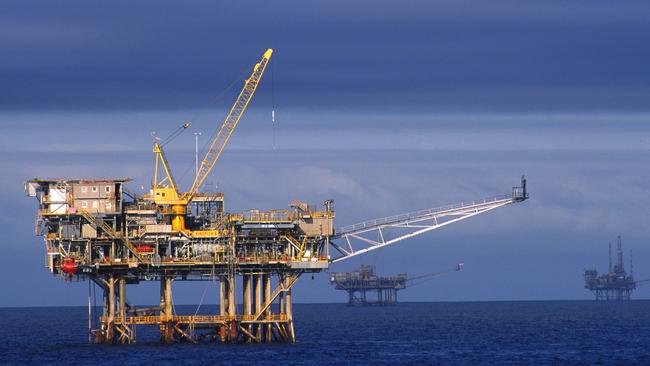
Instead the frustrated American energy giant is selling out of Bass Strait, and BHP may follow.
Santos and Beach are possible buyers and what they pay will depend on their ability to access the enormous low-cost gas reserves onshore that do not require fracking to develop.
Victoria’s onshore gas reserves require development expenditure but appear to be Australia’s second largest gas reserves (North West Shelf is the largest.).
Exxon’s plan was to spend $400 million on the first stage of its development.
What made Exxon so excited was the fact that this Gippsland gas was rare in the world. It did not require fracking and contained incredibly pure water that early testing showed could be used on the land without treatment. But treatment would not have been difficult. Full development would transform the water outlook of the dry parts of the region while the gas is so deep that the water can be extracted without posing any danger to the Gippsland underground rivers called aquifers.
Just as exciting, the gas was only few kilometres from the Exxon distribution centre at Longford.
BlueScope pencilled an agreement to take gas for its big Western Port steel plant, so ensuring its future and the outlook for employment in the depressed Latrobe Valley would be transformed.
But in 2013 the then Victorian Coalition premier Denis Napthine had an election due the following year, and he was behind in the polls.
Farmers had abundant water and were frightened about developing the gas while the Greens were giving Napthine a hard time. Gippsland was a long way from his hometown of Warrnambool in the west of the state, so he banned the Gippsland gas exploration and development.
He lost the election and the new premier wanted renewables, so extended the ban until 2020 - next year.
Gippsland farmers believed they were droughtproof but were wrong and now have had experienced a severe drought.
Had the Exxon plan been embraced they would now have abundant water as well as extra revenue from gas production.
The Coalition, now in opposition, realises its horrific mistake but Victorians have become accustomed to high gas prices and a depressed Latrobe Valley.
Exxon had hoped to find another Bass Strait bonanza, but it did not happen.
The onshore natural gas in the Gippsland Basin is neither conventional reservoir gas (like Bass Strait) nor the traditional coal seam gas, as found in Queensland.
Gippsland onshore gas is formed in deep lignite (brown coal) seams, which occur in multiple layers from about 500 metres to 1200 metres deep.
The lignite that contains the biogenic natural gas cannot be fracked (chemical injection) and contains over 50 per cent water. These deeper lignite seams are many times deeper than the surface aquifers.
Fascinated Exxon geologists in Houston completed an extensive technical review of the field, based on the thousands of drill holes drilled since the early 1900s in onshore Gippsland either looking for oil or mapping out the coal deposits for mining.
The explorers ignored the gas they encountered. After the ban Gippsland Gas relinquished its leases in frustration. Lakes Oil also has reserves of similar gas nearby.
I fear the Victorian government wants high gas prices for environmental reasons and would prefer gas used down south to come from Queensland, even though at least one Queensland exporter has sold more gas than they have found.
AGL wants to ship LNG gas into Victoria via tankers that will berth at Western Port, which is very close to the banned gas. Environmentalists are not happy. We live in a strange world.



Had Exxon’s grand plan for Australia’s energy future not been banned by the Victorian government, Australia would today have vastly lower gas and energy prices and no water shortage in Gippsland.